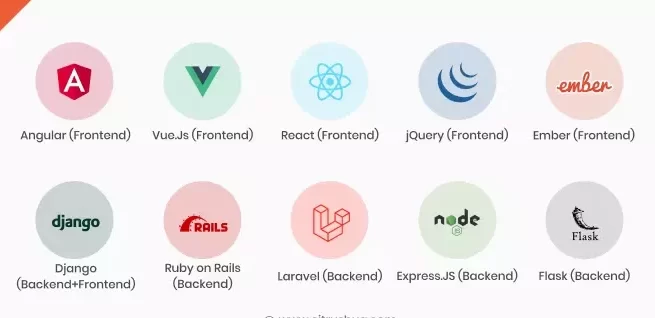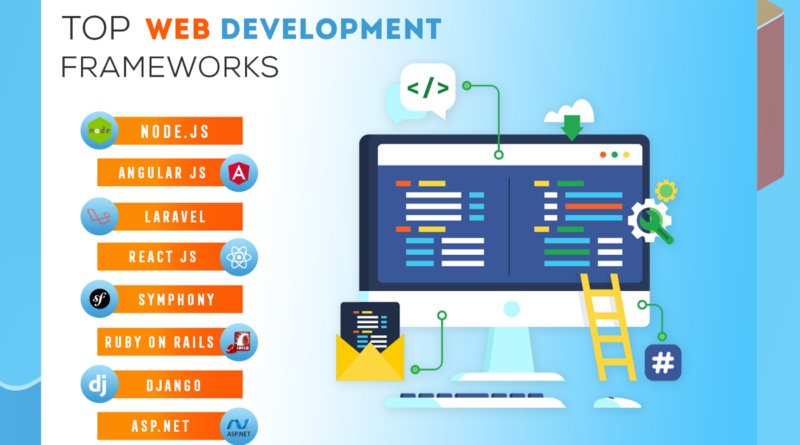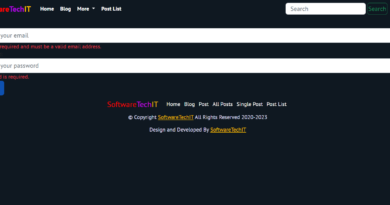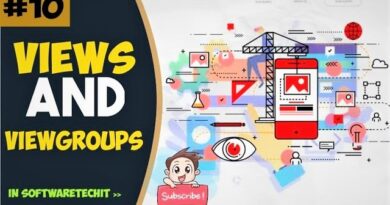10 Best Web Development Frameworks in 2022 (Frontend & Backend)
Table of Contents
10 Best Web Development Frameworks to Consider in 2022

Below-given is the list of best web development frameworks that could be leveraged for app development in 2022:
1. Angular (Frontend)
Angular is one of the most prominent front-end frameworks leveraged by a huge number of web application development companies. Angular was first introduced in 2009 where it used JavaScript as its programming language. It was later transformed in 2016 and now uses Typescript instead of JavaScript. Angular is known to develop client-side dynamic web pages.
Angular is a large and all-inclusive framework that contains controllers, libraries, directives, and other components which makes it harder to learn as compared to other frameworks. Angular is based on MVC architecture (Model-View-Controller) and can be used to create high-performing single-page applications.
Advantages
- Availability of countless Angularjs development services.
- It supports the MVC architecture.
- Two-way data binding is present.
- It speeds up the application development process.
Disadvantages
- Slower processing.
- Steep learning curve.
- The documentation part is not well-organized.
2. Vue.Js (Frontend)
Vue is a highly popular web framework used to build single-page apps and user interfaces for web apps. The framework is based on MVVM architecture (Model-View-ViewModel). It is lightweight and has numerous tools and features to create functional user interfaces. Vue is easy to use and learn and can be easily integrated with 3rd party tools and solutions.
Advantages
- It is lightweight.
- It has an easy learning curve.
- The framework aids in swift development.
- Easy to integrate with third-party apps.
Disadvantages
- It is not supported by the top IT enterprises such as Google, Microsoft, etc.
- The available tools are not very stable.
3. React (Frontend)
React is basically a JS library introduced by Facebook (now Meta). React works as a web framework and is mostly used to develop single-page front-end applications. Apart from it, it supports development for mobile applications which is usually not supported by the majority of other frameworks.
React effortlessly integrates with multiple other libraries for successfully conducting operations of routing, state management, and interaction with API.
To get your project made in React, hire Reactjs developers from here!
Advantages
- It consists of a virtual DOM that offers fast manipulation in the documents.
- Easy to integrate with other libraries.
- It supports mobile application development.
Disadvantages
- It has a complicated structure.
- The documentation part is not well organized.
4. jQuery (Frontend)
jQuery is an open-source JavaScript library used for building app user interfaces. jQuery is known for its simplistic approach and cross-browser compatibility. The framework provides easy interaction between the elements of DOM and its syntax structure.
The framework is prominent due to its ability to create exceptional effects and animations in the developed apps. jQuery is small in size and has multiple plugins to easily add functionalities into its structure.
Advantages
- It is extremely easy to use.
- It has support for extensive libraries.
- It is backed by a strong open-source community.
- jQuery offers easy documentation.
Disadvantages
- jQuery javascript file is required to make the app function.
- Limited functionalities are included in the framework.
5. Ember (Frontend)
Ember has earned the reputation of being the best Javascript framework many times. Ember offers various out-of-the-box features that can be used to develop highly functional applications. Ember is used by various tech giants such as Google, Microsoft, and Netflix.
Ember is based on the MVMM architecture and is simple to use. It eliminates the need for redundant tasks and adopts some of the best JS practices in its core design to develop web apps.
Advantages
- It delivers high performance.
- The documentation is extensive and well-maintained.
- It supports code debugging.
Disadvantages
- The framework has a steep learning curve.
- It is not suitable for smaller projects.
6. Django (Backend+Frontend)
Django is a prominent Python framework that has an extremely high demand among developers and businesses. Django uses the concept of code reusability and follows the MVT (Model-View-Template) Architecture that enables it to develop applications at a faster pace. Django is one of the finest web frameworks that can be leveraged to create both the frontend and backend of the application.
The biggest corporations such as Instagram, Disqus, and NASA use Django to handle their backend operations. Some of the key features of Django are messaging, in-built validation, and authentication. This framework is suitable to design complex and large business projects.
Advantages
- Faster development.
- Availability of inbuilt authentication tool.
- Huge community support.
- Well-organized documentation.
- It can create secure and robust applications.
Disadvantages
- Steep learning curve.
- Slow processing.
Hire Python programmer that excels in developing scalable and profitable apps.
7. Ruby on Rails (Backend)
It is one of the oldest web development frameworks for building the backend of applications. It is based on the Ruby programming language and has developed over 800,000 websites until now. The framework supports usage of complex algorithms to design functional logic for complicated business problems.
It includes powerful libraries and tools and can be used to create cloud-based applications. Apps such as Airbnb, Hulu, GitHub, and Groupon are made using this framework.
Advantages
- Speedy development.
- Automation-enabled.
- Enormous libraries and tools.
Disadvantages
- Slow processing.
- Improper documentation.
8. Laravel (Backend)
Laravel is a PHP-based framework that fundamentally works on the concept and paradigms of PHP scripting language. Laravel works on the MVC (Model-View-Controller) architecture.
It comes with API support and has numerous packages that make the framework adaptable and extensible. The framework is mostly used to design the backend of web apps. You can hire backend developers proficient in Laravel for small to mid-range web solutions.
Advantages
- Good documentation.
- Cache backends.
- Integrated mail services.
- Availability of the newest features of PHP.
Disadvantages
- No support for payment gateways.
- Not suitable for developing mobile apps.
9. Express.JS (Backend)
Express is a Node.js API that is extremely powerful and can create highly productive web applications. It is mostly used by large enterprises due to its higher flexibility.
It has several in-built features and functionalities such as third-party integrations, routing, templating, server-side scripting, etc. that make it suitable to design functional apps. In addition, it has a minimalist feel and is easy to operate if you know the intricacies of the language.
Advantages
- Highly flexible.
- Feature-packed.
- Great for API development.
Disadvantages
- Monotonous callbacks.
- High learning curve.
10. Flask (Backend)
Flask is a Python-based web framework that is known to build robust, lightweight, and high-performing applications. It is a microframework and includes all the necessary libraries and functions to create applications from scratch to ultimate.
The key features of Flask include a built-in web server and debugger, RESTful request dispatching, unit testing support, WSGI compliance, and Unicode support. You can hire Python programmer proficient in Flask to achieve the best outcomes for your project idea.
Advantages
- It is highly flexible.
- It is scalable.
- Flask is lightweight.
- Good documentation.
Disadvantages
- Higher maintenance.
- Availability of limited tools.
- Difficult to use for complex applications.
Wrapping Up
Web frameworks are extremely crucial elements in the software development process. Each of them has its unique set of capabilities and limitations. Depending upon the project requirement, each one of them will provide you with the best outcome for your project. If you are confused about which one to choose for your project, you may get guidance from Citrusbug, one of the leading web application development companies, that has extensive experience in developing the best web apps for all sorts of market verticals.





